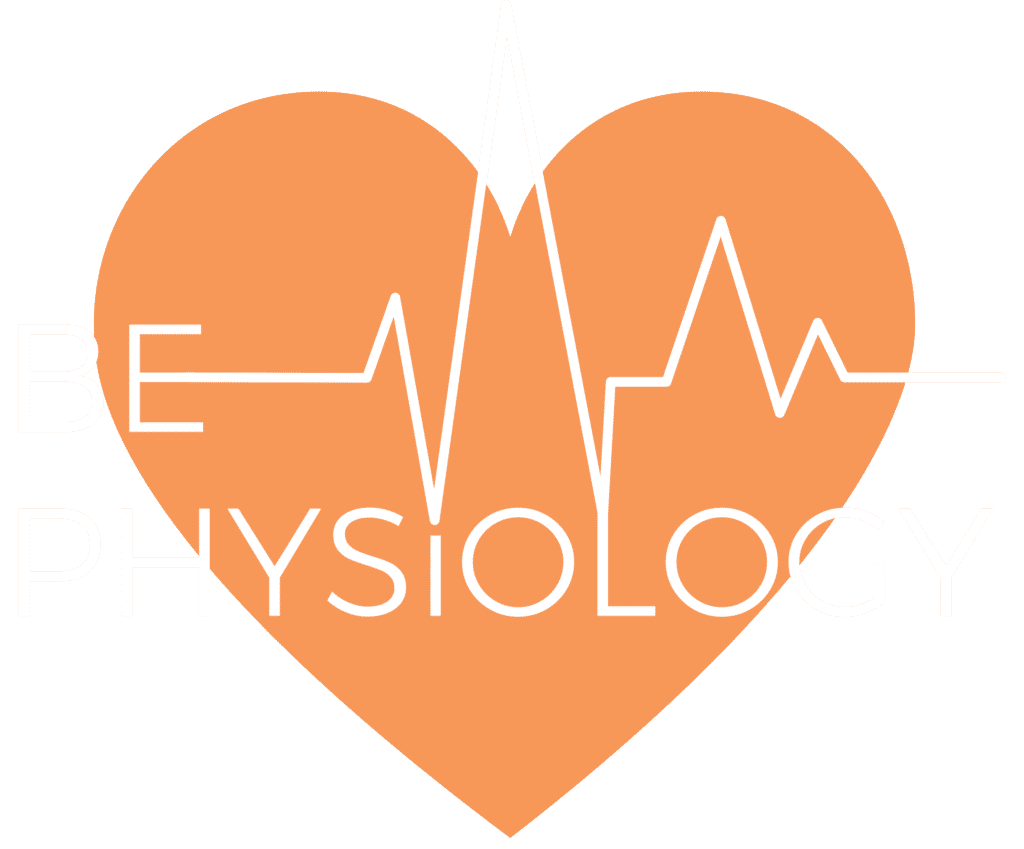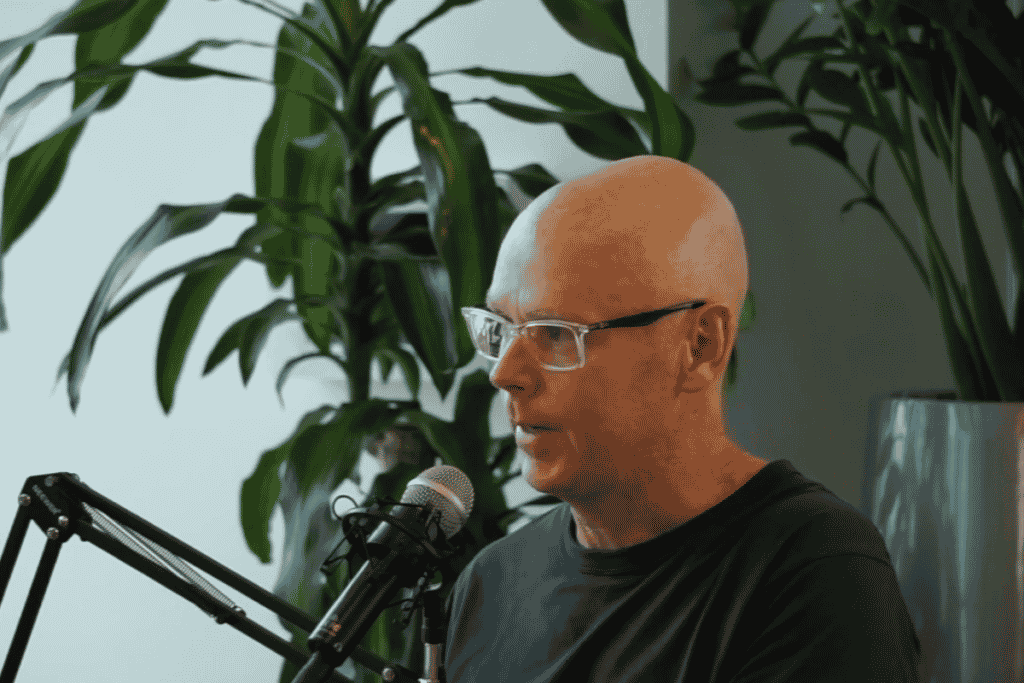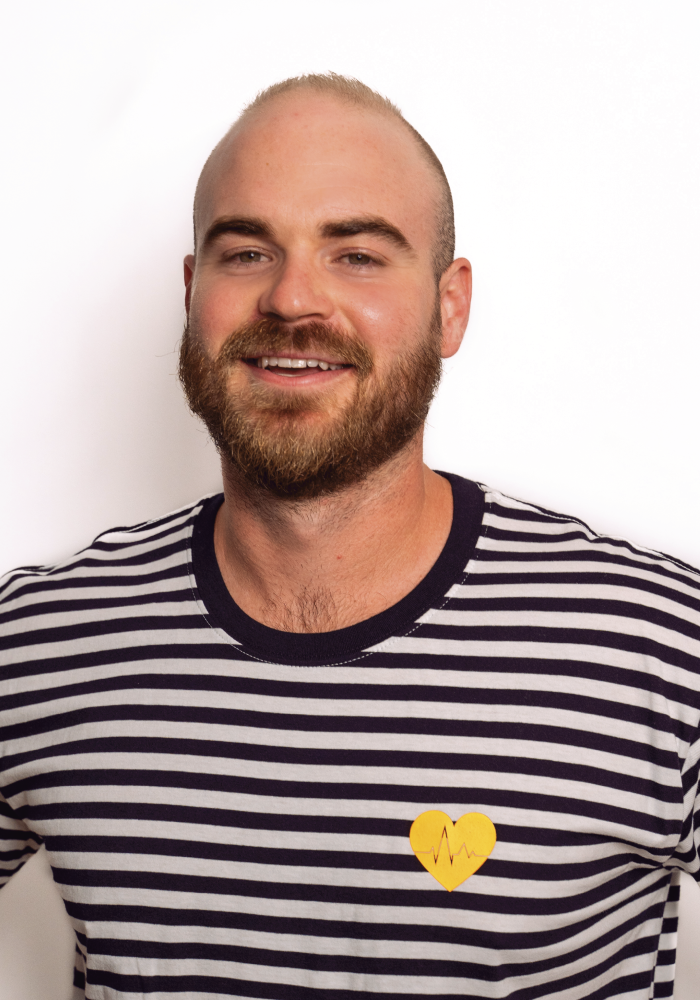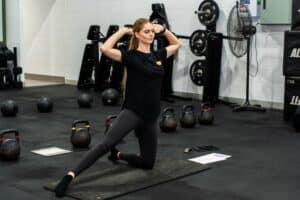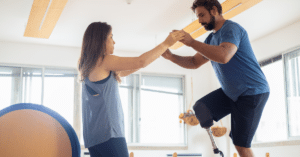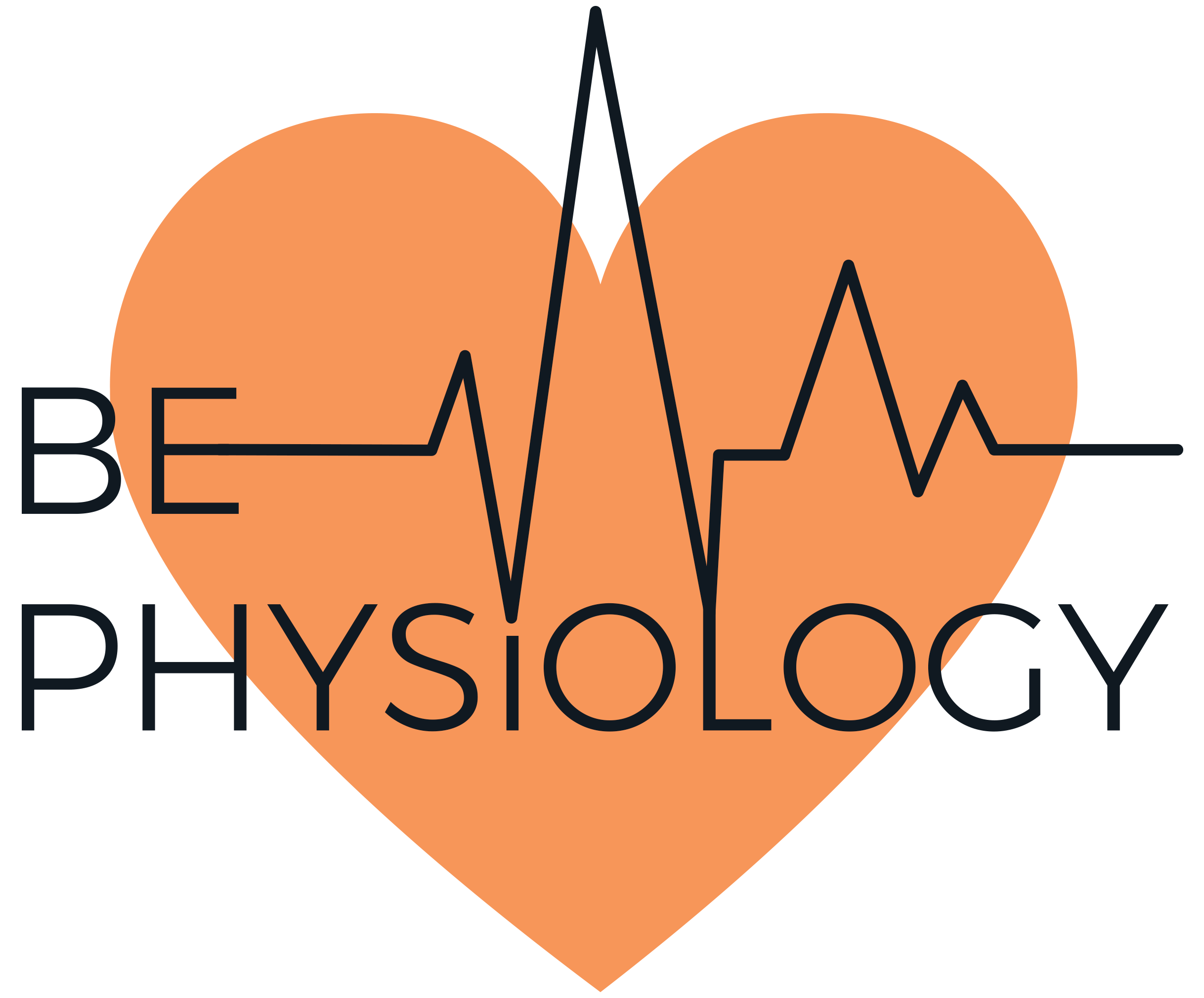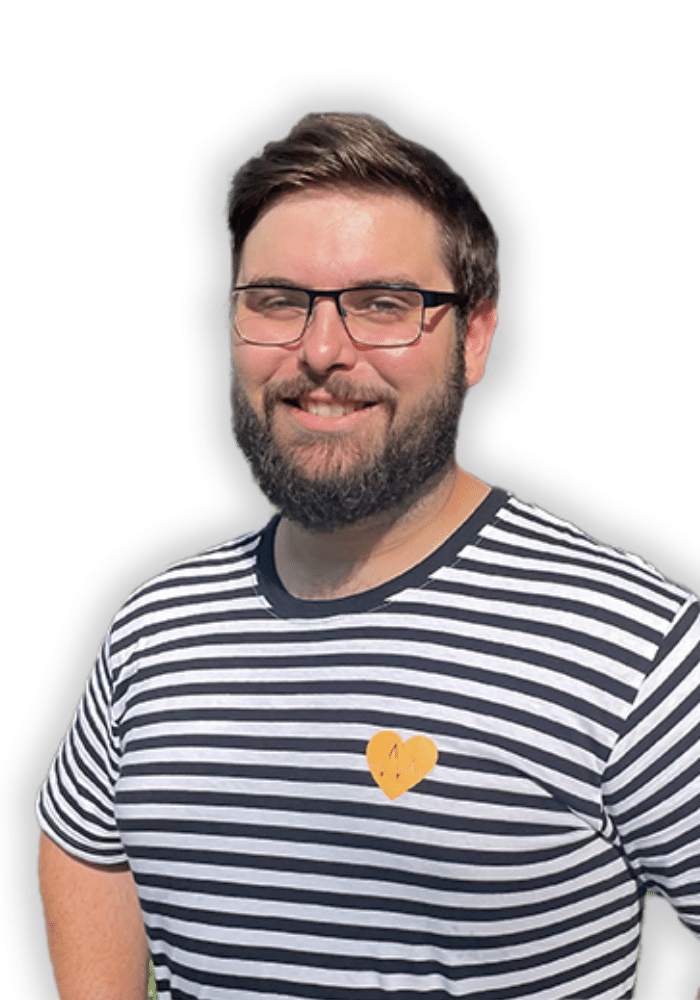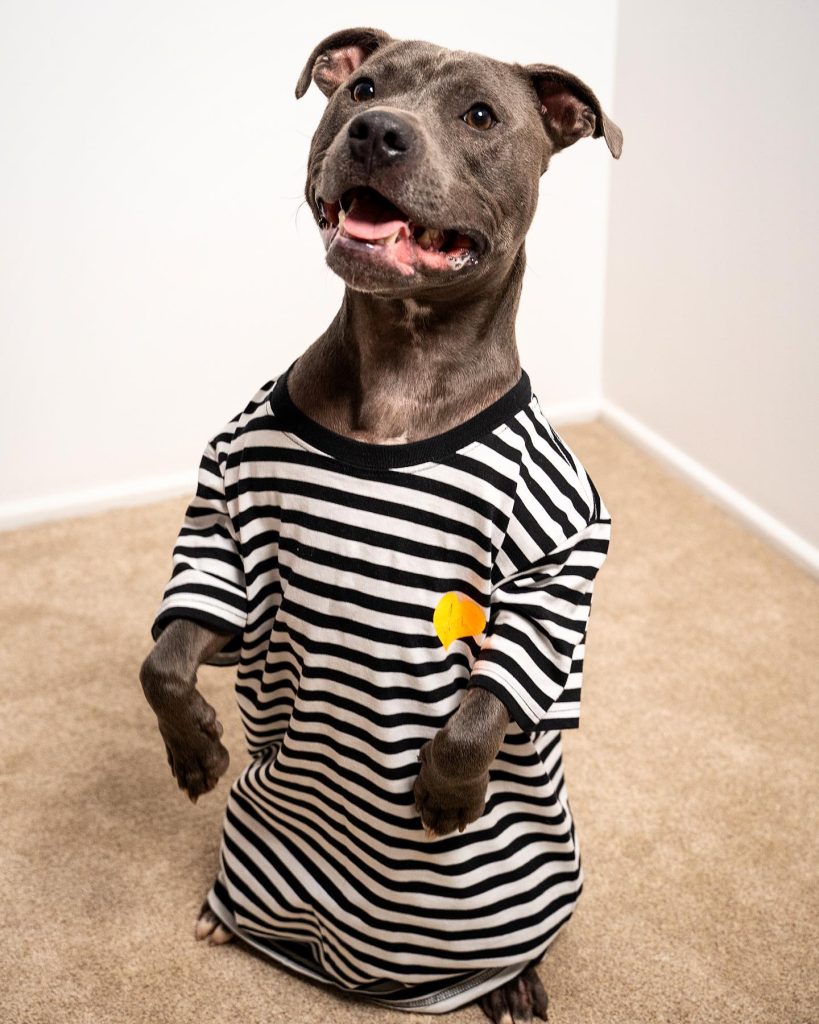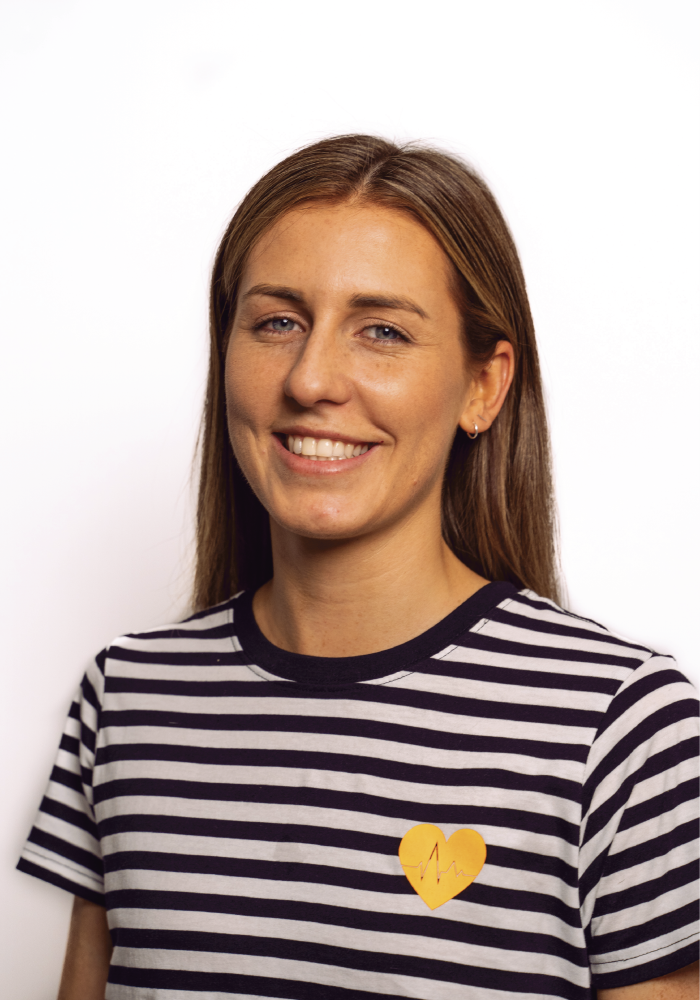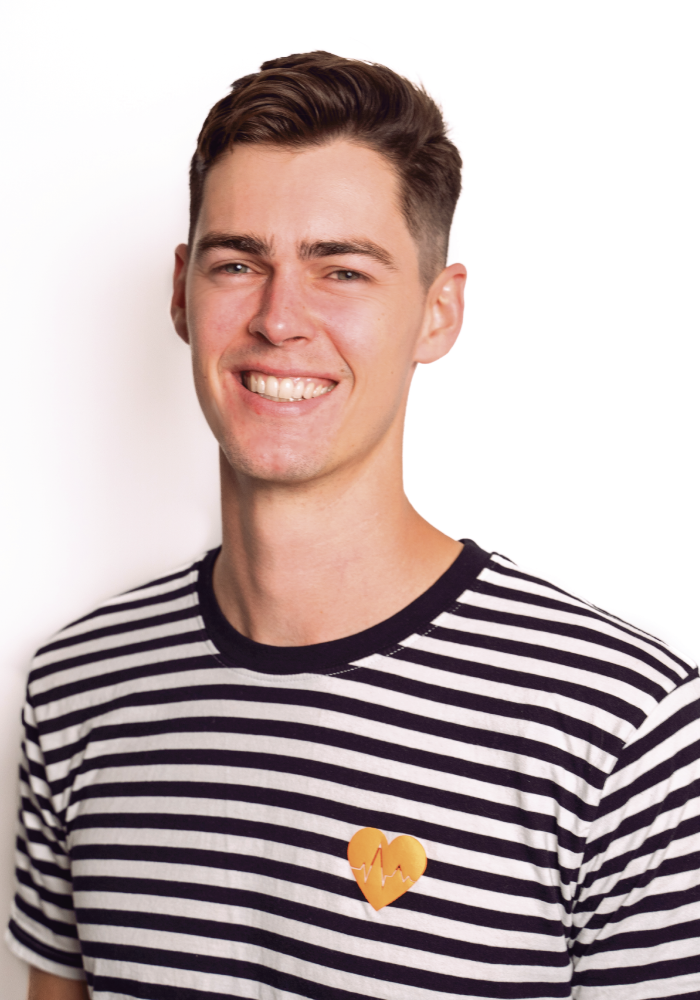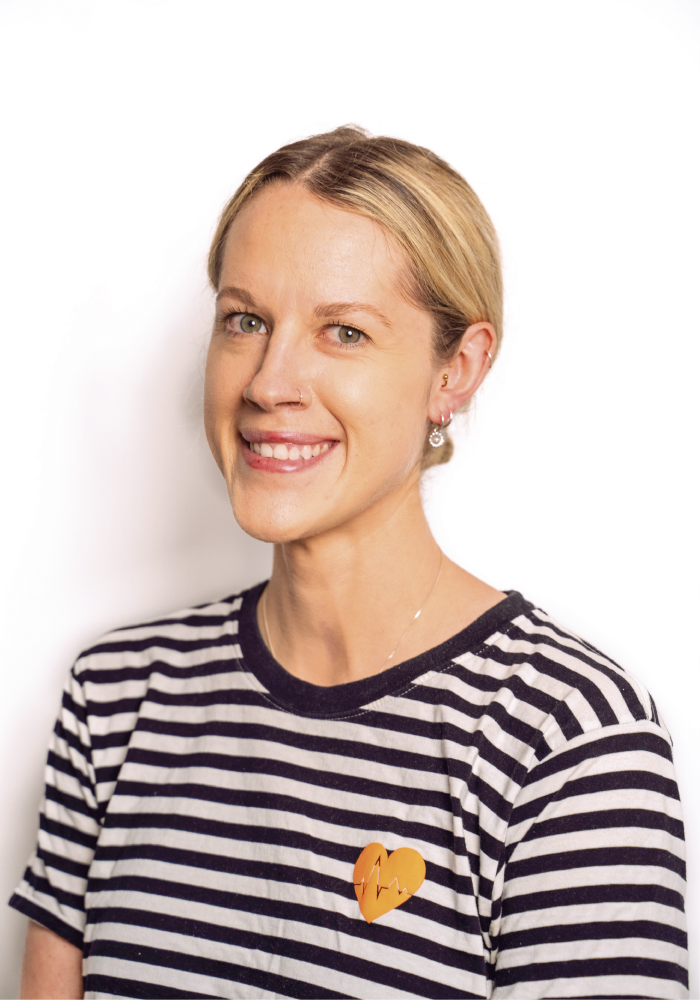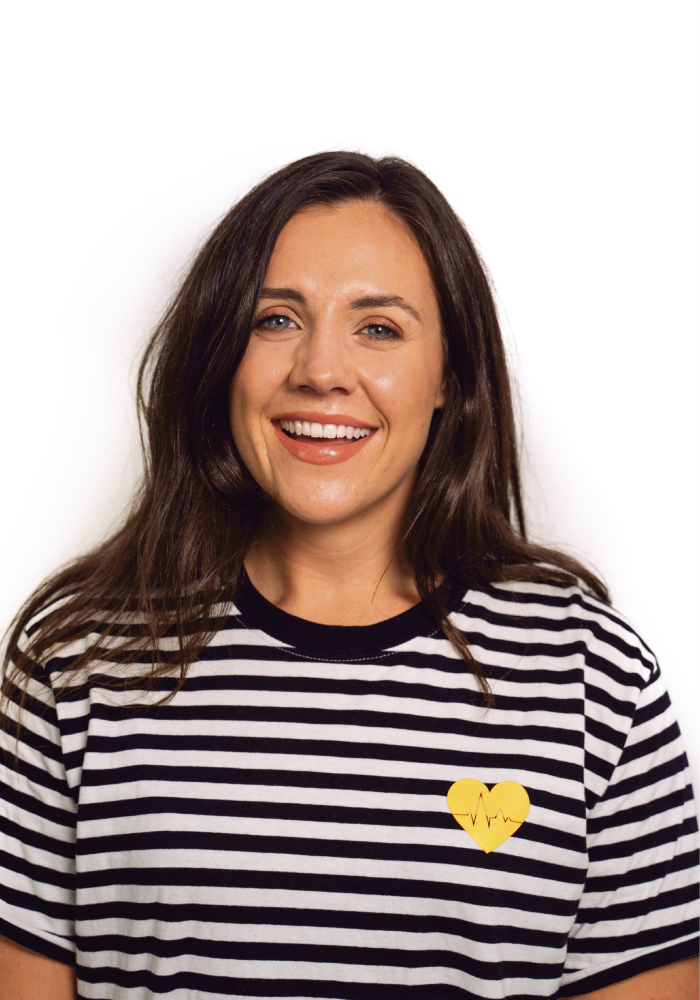And we are back with Season 2 of the UNAWAWRE podcast by Be Physiology! Get ready for a stream of honest and eye-opening conversations – with a lot of laughs along the way!
The first cab off the rank is Charles – a deep-thinking individual who offers us a unique perspective on disability. As far as Charles sees it, he is faced with two options every morning. Option 1: stay in bed. Option 2: give it a go. It’s not an easy decision. In this eye-opening interview, Charles explains how choosing Option 2 has made his life richer and more fulfilling than he ever could have imagined.
Once upon a time, he tells us, Charles’ ego was centred around his position as a company CEO. That’s how he’d introduce himself at parties, anyway. Then, after he experienced an “unscheduled dismount” of a horse while riding with his daughter, his perspective changed. Charles describes how his body incurred a spinal cord injury that would change his way of doing life. Faced with the need to relinquish control, Charles decided his ego should be more attached to his persona rather than his situation. He tells us how this shift in perspective allows him to discover new opportunities and explore possibilities. Oh, and it also had Charles challenging doctors when they told him he would never ride a bike. Update: he now rides a bike.
Our conversation with Charles leads to some valuable nuggets of wisdom and useful life advice. Listen in to hear Charles talk about the power of determination and the disability that hasn’t been near as disabling as he expected.
[activecampaign form=22 css=1]
Transcript
Hello and welcome to another episode of The Unaware Podcast with Be Physiology. So, sit back and enjoy this episode of Be Stories, where we get to chat to Charles as he rediscovers his approach to life after his body sustained a spinal cord injury.
Charles, thanks so much for joining us here at Be Physiology on our podcast, The Unaware Podcast. First question we like to ask everyone who comes in is, and it’s usually a very tricky question to answer. Yeah?
But uh, what would be the name of your autobiography? Yeah well, great opportunity to come in as well, so thank you for that. I’ve been quite looking forward to this. I’ve had a good think about that and my autobiography would be titled “Two choices every morning”. I wake up and I’ve got two choices and I make those two choices consciously now but when I reflect back on my life, pre the spinal cord injury, I was making them unconsciously. The two choices I have every morning are: Choice n ber one is stay in bed. It’s quite easy to justify that as a person with a disability, I can find people around me that will reinforce that behavior. I might pop a painkiller or two and stay in bed and get through the day because I wake up in pain every day of my life. Choice n ber two is to get out of bed and give it a go and getting out of bed and giving it a go for the last six, almost seven years that I’ve had a disability, that my body’s had a disability, has allowed me to live a much richer life. It’s allowed me to experience things I would never have experienced, even as a person without a disability. It gets me out of bed to get on my bike. It gets me out of bed to get into the gym. It gets me out of bed to experience life to the fullest and absolutely, it’s not an easy decision to make every day, and all disabilities are different, so this is just what’s worked for me personally. But I absolutely push myself to take choice n ber two; get on with it and that’s worked extremely well for me.
I love that! That’s a great, great choice.
Yeah, yeah one of the, definitely one of the titles that I can relate to I was to say that. There’s always a positive way of doing something or looking at something and a negative way, and if you lean towards the positive, it’s more likely to happen.
Good things happen? Right. Yeah yeah yeah, absolutely two choices. I love that! It’s fantastic.
That’s great, okay let’s move on to just give us a little bit of a background about your life before you know having this injury that you mentioned and then we’ll kind of get into that a little bit afterwards.
Okay, well firstly, I see my life as it’s a continu so I don’t see before and after there was a point in my life that a part of my body incurred an injury. It’s not me, it’s a part of my body. Before I had that injury, I was doing different things so I’d had a great corporate career. Moving into the next stage of enjoying after corporate career and that got to the point where I sort of had a lot. Just before my injury, I had a lot of free time on my hands which I’d never had before because I’d pushed myself pretty hard in a corporate environment and to do that led to benefits in the corporate space. I became a CEO before I was 40 of a public company and I had great success where I worked at all the companies including the last one that I did. But my ego and my persona when I reflect on it now were geared around pre my body incurring a spinal cord injury. would get around a corporate persona as much if I was at a barbecue and you introduce yourselves to each other and you say, “Hi I’m AJ, I’m Harry and I’m Charles”. The next question that always flows is, “so what do you do?”
People are interested in what you do for work. I find that weird now because work is not actually that important, but I would have introduced myself as, “I’m Charles Gregory and I’m the CEO of a public company”.
Hmm interesting. So well, can I just because the word that you used was ego so do you mean that like you dropped your ego as a whole you just shifted the way that your ego was sort of positioned? Like your ego was no longer based around work or you’ve actually just dropped your ego entirely?
So when I’m talking about ego everyone has an ego. It’s not the so believe me the commons sense of the word but that’s my persona; that’s how I described myself. That’s where I found my space in this world. I was good at it. I got recognition for it and that kept reinforcing it. After my body incurred a spinal cord injury, I still had this ego and persona that was around being in command and control of life, corporate life, and all the bells and whistles that come around that and when I incurred, when my body incurred, a spinal cord injury, it was a big adjustment for me. I can remember the early days at the PA Hospital, I was there for nine months, so I got to experience a lot but in the early days. I felt a strong drive to manage the process of going through rehab but I couldn’t help myself in terms of identifying areas in the hospital where I just thought it could run a whole lot better and needless to say that that didn’t go down well. It’s a few of them with the doctors and specialists but I was used to controlling my own life yeah and when my body incurred the spinal cord injury to move from command and control to relinquishing control to others to help me get through an event that had happened, then that also drove, or was the impetus, I would say for the change in persona and ego in that I now have to advocate with people to get outcomes that I want. I have to come across in a different way and I achieve as significant outcomes, but in a different way because my ego is not a CEO ego anymore.
What’s that process like in terms of time? I imagine that that is not something you figure out overnight, or you develop overnight?
No. It took all of that. It took a long time and even after my body incurred the spinal cord injury I straight away push to go back in to commercial space so the closest thing I could do with the amount of hours I could work was join boards in a director role and I’ve done a couple of those including at Sporting Wheelies where I met Harry. But I’m on what I’ve decided personally is the last one now. I’m on a board of a company called Life Tech and after I finish with Life Tech, it’s not something that interests me anymore and it doesn’t really row my boat.
Yeah right. You mentioned that you don’t have the the title CEO ego anymore, what would you title your ego as now?
It’s interesting because I don’t, and we should probably get into this at some point, I don’t consider myself a disabled person. My body has a disability so I’ve moved my discussion with others or how I engage with others more around, “I’m Charles and let’s have an interesting discussion”. In reality what I’ve found is that it actually bores people when you go to a barbecue and say you’re a CEO. I thought it was really I want to know how the sausage is made I thought it was really exciting but they’re actually more interested in Charles the person.
I’m far more interested in Harry or AJ the person as opposed to what you do nine to five because that can get taken away from you in a snap.
Where do you go from there? I’ve seen it with others not managing to get past that point.
It’s all bells and whistles really if you identify with what you do like that in a professional sense.
The way that you described it just automatically made me think of, oh it’s just like a veil that I put on my shoulders every morning and I walk out the door and that’s what I do, you know but yeah that’s something that covers me up that’s right so you define your purpose in life and there’s nothing wrong with that.
I mean everyone does it what you guys are doing is a great purpose because it helps others achieve more that’s how I see exercise physiology but it’s important to recognize at some point that might not be Harry and that might not be AJ. In fact, it won’t be forever and it’s that separation between who Charles is and the injury. Did that come at the same time as shifting your ego and what not, or is this like a completely separate realization that you’ve had?
I noticed immediately when you were referring to my body has a disability and it’s not. I have a disability that’s noticeable because not everybody uses that kind of language
Did that happen at the same time as the shift in ego or is this something that you’ve just developed separately?
Definitely, over time it takes time to let go of who you thought you were and it takes time to accept what the future person is and I do only see what’s happened to me as my body besides a lot of other injuries that happened on that day. My body got bruised between T3 and T4.
That is not me! My disability will not dictate to me in terms of what I do and people around me who deal with disability a lot, particularly in the medical profession, won’t dictate to me what is and what is not possible now that my body has this disability. In fact, and I’ve got a couple of examples of this, if you’re a doctor or well let’s say you’re a physio in in the PA. The in-house physios do a fabulous job. Tiffany that I worked with there, I still remember what she did for me. At a point we had a discussion about riding a bike and the feedback I got from the medical professional side was that because of my injury and my shoulder my body’s injury and how my shoulder presented after the injury, getting up and down off a bike would not be possible so it’s best I look for something else. That was my invitation to get on a bike and that started a journey and Harry’s actually played a role in that.
When we get to that I’d like to talk about that a bit more yeah absolutely tell us a little bit about the injury that your body sustained.
So my body sustained what’s termed a spinal cord injury. In terms of the injury, there’s no blood and guts around; it’s a bruise. The bony part of my spine moved into my spinal cord and bruised it and that swelling caused a interruption of signals that I can send below that point and it’s never recovered to the point where my body has full functionality below T3 or T4. I’ve been classified as a complete injury and again I refuse to accept that and I know I’m not because I can achieve some function below. I’ve been driven to do that so I don’t consider myself a disabled person it’s like if you had cancer, we don’t talk to people that had cancer as cancerous you know? No one else is expected to carry that for the rest of their life so I’m a person: I’m Charles Gregory and there’s a small part of my spine that’s had a had a bit of an issue, but it’s created so many other positive outcomes in my life, and that’s how I see it. It will not manage me. That is not me.
When you sustained this injury when your body sustained this injury, what activity were you getting up to and how did it come about?
Well I was doing in the the privilege, I had of having a lot of time in my hands. I was doing what most 43/44-year-old fathers would want to do and I was doing an activity with my daughter. I was riding a horse and I probably rode a little bit beyond my ability but that’s how I enjoyed riding. On the day and I’ve got to be I’m careful to an extent because I’ve told the story many times shortly after I got injured and I’ve got to be careful that that doesn’t define me and become who I am yes. But the way I look at it is I was maximizing time with my daughter. Unfortunately or fortunately, it resulted in what I call an unscheduled dismount from my horse Hugo. Hugo was going one way, I was going another. He was trying to outrun another horse and Hugo and I parted ways. I don’t actually remember us parting ways but Hugo decided he had enough for the day he ran home. I woke up or I became conscious in a park and I cheered off a water bubbler with my back when I came off the horse because the last thing I remember is thinking I’m going to turn the horse into the fence to stop him. Instead, of course, he had bolted into an area where kids were and that’s the last thing I remember. He obviously chose right he also makes the second choice. That was a life-changing moment for my body but it’s enabled me it’s actually enabled me more as a person. My body’s just got the small physical issue to it.
Do you think that you would have ever come to the same realizations that you’ve come to now from a personal standpoint without having gone through?
No, simple answer is no. Just touching back on the corporate world again there’s a strategist who publishes a lot of papers, he’s really well known, Jim Collins, and he talks about levels of leadership. You go from a base level, to level one through to very senior CEOs who would be on level three or four. You don’t just see this in the corporate world, you see it in all walks of life and then level five leaders are the truly aspirational leaders. You have people like Steve Jobs would have been in that space and people that you know who just achieve greatness not for themselves, but achieve it through others. Something they talk about with level five leadership is that only people that have suffered through significant adversity actually managed to get to that point, so I often used to think as a CEO I thought I really want to get to that level five but I pretty much lived the life of riley. So trying to find things that actually went wrong in a significant way was difficult yes, but be careful what you wish for what. I’m not level five yet but I’ve ticked all the boxes besides getting here they’re gonna come back.
Aj and I, we’ve talked about this many times before in terms of the people that we seem to connect with the most are people with not shared tra a but at least tra a in some way. I don’t know exactly what it is for me personally, but I just can connect and open up to those people a lot more and that was something that I never really even thought of as a thing at all before going through troubles myself. So it’s just amazing how you get built from these negative parts in your life and it fully depends on how you use those parts of your life.
Yeah, two choices.
Where do you see the link between a level five leader and tra a?
In a superficial way, you can see a link but I’m trying to think of how I would define that.
Not knowing at all, you see that link to me goes back to the ego thing and that significant event that you’ve been through in your life forces you to re-evaluate and you end up having a really hard look in the mirror and, you’ve usually got a lot of time to do that.
In my case I had nine months of you know, staring at the ceiling, and I’ve had six or seven months since then, so it’s having that time to self-reflect turns you or doesn’t turn you. It releases the better person within you and you resonate with others without even telling them what I’ve been through, although it’s pretty obvious that there’s an issue. But it resonates with others and I can actually take more people along with me on the journey now than I could as a CEO because I’ve got this powerful space that I can talk from and I’m not writing an academic journal about two choices. I’m not telling people what they should do. I’m telling them what works for me as a person and every morning I wake up with two choices and I make choice n ber two. What I don’t like though is sometimes I’m making choice number two and choice number two can be going to the gym ripping around on my mountain bike something like that and they’ll say to me you’re such an inspiration, and it’s not about that.
I’m not trying to inspire others I just want to be a full and open person to bring others into my life without feeling that I have to command and control everyone that that point from an outsider’s perspective trying to understand your position usually does. Again, this is me speaking from looking from the outside in and experiences that I’ve had before and people telling me about it it usually comes out as that really motherly. “Oh that’s so amazing what you’re doing right now right I can’t believe how strong you are”, or something like that. Imagine saying that to someone. Imagine everyone out there if you were walking up a set of stairs and someone came over and patted you on the back and said, “Oh that was about 14 stairs you just did then that is amazing!” You’d kind of think there is something going on here.
That’s right.
As soon as you can get that perspective, it will help immensely I think with understanding people because what a disabled person has is that their expectation of you was so much lower. Yes you shouldn’t be able to get up the stairs. Your body’s got a disability right? To be fair my experience is that a lot of people are uncomfortable with disability so they will say things that may come across as stupid even if they reflected on them yeah but because they’re in the moment and they’re trying so hard not to show their discomfort, they’ll say something awkward like that. So I don’t judge and we’ve all done it before so it’s definitely something that you become more conscious of.
I’m South African as you can tell but I’m Australian. I was born in South Africa, but what I’ve noticed in Australia and particularly a younger generation, my child Chloe that I was riding with on the day, she’s 21. My son James, 25, so they don’t see anything in a discriminatory way and they don’t actually see disability as much as older generations do. I’ve found that I really comforting.
Acceptance in society. Society accepts diversity these days as opposed to everyone’s got to present in a specific way.
Comforting in the sense just of how you were able to go about your everyday life or comforting in a sense of when moving collectively is into the right community.
I think it’s been part of a better term. Let’s say the normal part of community so it’s comforting that you’re not dealt with by exception. Sure you need a hand every now and again but so does everyone else just for different reasons. But something I’ve tried to do is push myself what I call out of disability space into able-bodied or normal body space as much as possible so thinking about exercise there was a point in my time where, and there will be in the future again, using exercise physiologists who had specific knowledge of the injury I had and using equipment that was designed for me was important because that got me up and going. But now I’ve pushed myself beyond that so I joined a normal gym, Anytime Fitness. In terms of people’s bodies that have a physical disability, anyone in that gym that I’m aware of although I’m sure there are many other disabilities in the gym they’re just not apparent but I use, I try my best to just use or adapt the equipment that’s there because that frees me up to go on holiday and use the gym at the hotel. I’ve got to be really careful about not getting not trapped but finding too much comfort in that space that is specifically geared around disability because one can get drawn into that and then all of a sudden your ego comes again because that’s where I spend my time.
That’s what I talk about and that’s what I do so I’ve got to push myself out of that, but I think what’s really important point that I’d like to make is, I’m not reflecting on anyone else or any other disability that their body might have. Disabilities are all different and you need different levels of time in that space depending on where you are in the journey and what your disability is. I’m talking about what’s worked for me.
That was beautifully put. I think it was fantastic. Let’s backtrack a little bit the hospital system so after you’ve you know gone through this tra a and now you’re lying in bed you said nine months staring up at the ceiling, elaborate that hospital process a little bit more? Who are some people that stand out to you what was the what was the progression through the the ward and things like that?
I started in ICU and I was there for a while because when my spinal cord got jolted I also broke my ribs into my lungs and my biggest thing on the day was breathing. I actually vividly remember making a conscious decision. I told someone to turn me over and they said I can’t move you and I overrode them. I said I needed to breathe and my lungs were filling with blood. In the hospital system I had probably still been commanding control. I was lying on the ground to as I’ve said previously move into this role of not running the hospital and relying on others to help me through the process. The PA hospital in the acute phase are exceptional. They saved my life and the paramedics did the first operation when I was lying on the ground. They got me breathing through sticking a pipe through my side. Within the hospital system, I I found it extremely frustrating. I found it frustrating that I needed a baclofen p p because my body was so spastic after the injury that I couldn’t do the transfers that others were doing. I’d go into this rigid planking motion every time and I wanted the p p put in. Then I couldn’t manage the public health system to give it to me when I wanted it. At the end I checked out of hospital I had it done privately because I wanted the thing and it’s made a world of of difference. I don’t think this I’m unique to this. It’s any large, probably more government type structure, like that is difficult for anyone to control, but I don’t want to draw away from the fact that in the acute phase and the basic rehabilitation that they teach you is invaluable and important you know to go through, as frustrating as it may seem.
Leaving the hospital, you had that mentality of I’m getting this done. What kind of process was that for you in terms of finding people to help you out or what’s the next step? How did that work?
Relentlessly not giving up and interestingly, after nine months leaving the hospital as much as you hate it, is not that easy.
One second, just so I get a time frame on this,when you say acute what is the acute phase to you? When you talk about that initial rehabilitation, is that the first three months or like is there a long period of stay in the hospital that you consider?
The acute phase probably ended once my shoulder had joined up again and that the muscles had time to connect so I’m thinking about a couple of months.
Okay, so there’s a couple of months where everything is exceptional and then there’s a six to seven month period where you’re starting to see for three months I absolutely needed to be in that system. For the six months after that, no reflection on the people trying to help me, but my body had some impediments that needed a p p and things to get me going. The following six months were slower in terms of outcomes I was achieving and then I went home for a year and did almost nothing. I got the p p put in and worked my way through the medical system and it’s not just in government it’s working your way through how GP’s/ specialists work and you can get stuck on a merry-go-round getting sent from one to another, so to learn how to manage or work with that system and then get the outcomes that I wanted. That allowed me to get into the Sporting Wheelies gym and that started a journey facilitated by exercise physiologists to allow me to achieve some of the outcomes that I have.
When you’re talking about that oh I had I was I have a question I didn’t I’m like now maybe if I think about it and we can edit this part out but I have and I’ve lost it
That’s okay. I was expecting that to happen to me. Are you a bit nervous Harry?
Yeah oh god, can you tell?
What was happening at home that pushed you towards exercise physiology or that exercise physiology in general but starting to kick-starting your rehabilitation process again because obviously, you left the hospital with every intention of taking charge yeah and then you’ve said you’ve gone home and that hasn’t quite happened or probably a loving wife and Celeste if you’re lucky enough to have a partner when you have the injury and then if you’re lucky enough to keep them because it’s challenging space not just for you but for the family member but I think Celeste had a real need to get me out the house so you know started strongly suggesting things and sporting wheelies, sporting wheelies – it’s another firm that offer exercise physiology services was on the radar at that stage there’s not as many so there weren’t as many service providers then as as there are now I think it’s great that it’s grown I remember my first day I went to the sporting wheelies gym wheeled in I was still in a power chair they checked me out in a power chair because they told me that I would need one and I know I’m going to need one in later life. But, I decided I didn’t need it then so I gave it away but I went into the sporting wheelies and asked how it all worked and had a look at it, turned around and went home and I said to Celeste I’m not going back. She says “what do you mean?” I said, no it’s just disabled people there and at that point obviously I hadn’t relinquished myself fully to the change and I hadn’t even seen that. I obviously I knew cognitively I had a disability what my body did but I wasn’t really to assimilate with that population which sounds stupid now because I’m asking the normal population to assimilate with disabled people.
I got over that and then was that as karma conversation as you just made it out to be if accepting that I well when you say it’s just disabled people there and you’re telling your wife he’s obviously pushing for you to get out of the house and what not yep and you know there’s no like no one ever is going to argue that exercise is bad for you so that in itself is obvious but it was the environment that obviously put you off yeah so is this something that you could just like casually no it’s not the environment for me and then that was the end of that conversation or was there more of Celeste was very accepting possibly disappointed that I wasn’t going back but I think I just needed time for the idea to germinating and grow and I went back to the sporting wheelies and started a journey there with exercise physiologists and ultimately with with Harry and thank goodness I did because realizing that I had to be in that space at least for the initial stage and I recognize there will come times in my future again actually ironically freed me up to get out of that space yep and if I never went through that stage I wouldn’t have learned the physical skills that I did learn to take me to the next next phase and on a simplistic level to join anytime fitness which yeah I was I wouldn’t be able to make that journey without that interim step yeah and it’s it’s funny because we talk about it all the time but that’s why we exist it’s for you to no longer need our services like an exercise physiologist is there to help you yeah move into another part of your life or whatever you want to call it where you don’t need to have an exercise physiologist look over your shoulder that’s right you know where catabolic by nature is what we always push for as well is there’s always something next you know I agree and there’s that agree progression through it and I’ve seen it happen and again I’m reflecting on myself but I I’ve seen it happen lifestyle becomes your your medical appointment oh yeah and you’ve got to be careful of that because it’s a trap yes I mean your blokes are lovely to spend time with don’t get me wrong but it’s even now you know I’ve got to be careful why am I having physio every week no if I can’t fully justify it then it’s just becoming a habit and I feel comfortable in my space so my physio I’ve now turned her around she’s brilliant as well anushka and we spend physiotime focusing on some of the exercise components that enable me more so I go down to the swimming pool in radial the centenary pool oh yep every Friday and nishka assists with that and I swim 20 20 laps of 50 meter and that’s given me other benefits but it’s using if I’m going to use people to support me it’s towards getting those outcomes that I want to achieve yeah absolutely how did you find people that you know were close to you and and and just other people as well adapted to your new situation.
In terms of family, my wife Celeste did a fabulous job so she’s adapted we’re still on a journey at times and you know thank god the injury happened to me it’s I don’t know if I’m strong enough a person to being able to support Celeste the way she would have been needed supported but thank god I’m married to Celeste so she she took it on and she’s helped me but I don’t draw away from the fact that it’s obviously would have had an effect on her it’s been really quite difficult for my kids they came around particularly chloe we were riding together on the day so that craze created a couple of flow-on issues but to chloe’s credit she she’s worked through it she started her career now she’s in in beauty therapy and she’s getting on with with her life and credit to chloe for doing that and james as well it obviously affected my family significantly what I found with friends is that I probably and again when I was in ceo space you have no shortage of friends I found of course when you’re a person whose body has a disabled component to it you really find out which the real ones are and my circle of people that I used to call friends has undoubtedly diminished but I’m so glad it has because the ones that I’ve got left on the list that I still consider friends of mine are absolutely you know rock solid they are interested in Charles and not not how important I was in corporate world they they interested in me as a person and yeah I’m interested in them because of that it’d almost be kind of a relief in a way to find people to peel back those layers and find that those people do exist upon reflection yes it’s difficult at the time right yeah I had a mate that didn’t invite me to his 50th birthday and I thought I I really took an affront to that yeah and his reasoning was you know he wanted to have it sort of in the upstairs area and you know how would we make it work without even asking me right is it possible yes okay so that specific person yeah I actually still consider a good acquaintance and we we still hang out every so often but in terms of true friendship and what that means and it’s probably well it is a different circle of friends now and it is yes you’re right Harry it is a relief to know those that are are there always were there with the right intention yeah yeah you have been taking up these roles obviously as you’re talking about being on boards after your body sustained an injury what’s that process like
living with a disability in terms of finding places to work and the process of being part of a working group of people the dynamics that you make at work yeah so I would think I I haven’t been in the situation where I’ve gone back to regular work yep I would think for a person with whose body has a disability it would be quite difficult because sometimes I think what society doesn’t recognize is your competency is the same it’s just your exteriors presenting differently. So I would have thought that’s different the work I was doing on boards was director roles besides the risk that you carry personally if things go wrong they’re pretty easy you turn up for a board meeting you read the board papers before if you’re good and you give strategic input and governance and you provide that to the organization and it gets executed through the CEO this is a big part of your life that you had you know you’ve been doing that for years so it’s kind of that’s right well I was on the CEO level so the board is the next transition okay right usually happens in later life for CEOs they end up on the board for me it happened earlier but if I’m true to myself.
It’s not me anymore I think I was signing up for these jobs or these positions because I still wanted to feel that that part of my ego was insane but now I know when I’m sitting in a board meeting and quite frankly I’d rather be on my bike it’s a clear signal I’m not being fair to the organization because I’m not giving them the focus and attention that they deserve and I’m not being fair to myself because I’m not being true to myself I’m forcing myself to do something different but to answer your question in the board space if you’ve got a significant corporate background and then you available to sit on boards, particularly in the not-for-profit space but boards in general you actually get a lot of offers because it allows them to tick a box right and it allows it’s you know you’ve got the time available. So I’ve actually had the opposite experience – I can sign up for another three or four boards now, I’m definitely not going to, but I’ve had the opposite experience to someone that goes back into a regular working environment. I would have found that pretty tough to be honest.
I actually remember, and I share this embarrassingly when I was a CEO, and I won’t mention we would probably work out which company it was we had a person with a disability applied once and I distinctly remember the discussion with the HR person. Her reflection to me was we’d had the accessible bathroom facility but some of the accessibility would probably have to be looked at. I’m still embarrassed about this decision today but we made a decision and I was part of that to not recruit a specific person because of their disability. I’ve got no way of recording or knowing who that person was, I’m extremely embarrassed about that but it makes me realize sometimes the thought process that companies would go through and quite frankly we need to get over that because people whose body had a disability still have many other things to offer. There is a gap in time between like that occurrence, did you think about that before you obviously had the accident or is this something that just popped back into your memory after the fact because that’s after the accident? Sadly, CEO ego was so strong that decision-making moving on now we’ve got to do something else. It was yeah and I’m no less than disgusted with myself for doing that, but I can see how it happens right.
Yeah absolutely you mentioned before you go mountain biking, yeah and you know we’ve known each other for a while now and you do pick up little hobbies and interests and activities that you’d like to do like we both got into Rubik’s cubes a little bit that’s right at some point. I don’t know how good you are at Rubik’s cubes now but let’s just say my game’s probably falling off a little bit I still do the three by three easily yep okay four by four!
Yeah okay cool we’re on the same page so no pressure yeah what kind of recommendations do you have for people in terms of activities or yeah hobbies and things like that to someone who uses a chair all the time yeah my advice would be to get out there and give it a go and yes these things do cost a bit of money but there’s funding available through their NDIS you just got to go through a process I was impatient so I paid for my own bike but I have heard that you can get them through the nds yep it’s one of the best decisions I’ve made as I mentioned to you I had to push myself to get there people told me you won’t ever get on a bike so that’s what I went and did
I’m forever grateful Harry for and I don’t know if you remember this but one of the skills you taught me was a a floor to chair transfer.
Oh yeah I remember that for sure and that’s made a big difference to my life because floor to chair transfer allowed me to pick and choose a few activities that I wanted to do so floor to chair transfer allows me to ride my bike and going back to the question you ask me I think that is a great activity for people that spend time in a chair get your heart rate up it’s outdoors can be fast it’s fun. Floor to chair allows me to go swimming and I get to swim laps in in a pool because I can tricep dip myself down onto the pool level get in and get out floor to chair transfer which you taught, allows me to spend time with my granddaughter on the floor playing we’ve got this massive snakes and ladders mat and moving the things around there still get a bit of assistance from ella I’m moving my little widget runs too far okay and she’s a little bit older now as well but floor to chair allows that floor to chair allows me Aj when I go to the beach and Celeste and I used to love doing this Celeste my wife I can now go to any beach.
I can actually power myself on as as far as I can the floor to chair allows me to sit with my wife on the beach and get back up in the chair when I’m when I need to leave so it sounds like something that’s superficial but when you’re lying in the PA hospital and you start thinking of all the things that now aren’t going to be possible, I would encourage people to think about well if they take choice number two and just give it a go what is possible and you need to reach out to an exercise physiologist to teach you how to utilize functionality in the body that you still have to its maxim to achieve the outcomes that you want. So you might not know this but what you’ve taught me and it took us a while to learn to do a floor transfer has changed my life for the better because it’s allowed me to experience many more things or carry on doing things that I was doing before my body incurred this injury yeah you’re an inspiration.
No it’s genuinely you know you go to work every day and you you don’t really think about that stuff as much and yeah it’s it’s amazing to know that you have an ability to help people I think and yeah I’m just happy I was there for it to be honest well I’m internally grateful yeah it’s made a big difference. Thanks Charles no that’s fantastic what’s what’s something that I guess over the last few years that you’ve learned that you wish other people knew about disability as a whole as umbrella as a that’s a thing.
I’ve learned it’s not as scary as it seems and again this is no reflection on how others have experienced a disability that everybody might have it’s my experience but if they wanted to hear about my experience I’d say to them it’s not as scary and as life-ending or changing as it seems in fact it creates other opportunities for you and it allows you to spend time on yourself well let’s face it we all like doing that a lot of me-time oh yeah and you get to go on all these new adventures which wouldn’t have been possible or wouldn’t have been on the radar prior so no one wants a disability and I don’t wish it on anyone obviously but if anyone’s ever if anyone listens to this part podcast that’s in the PA hospital thinking about my life’s come to an end.
I want to share with them that mine hasn’t and it’s freed me up to do so many other things that I wouldn’t have done if my body had not had that small little impediment to it, yeah such just hearing things like that because I know so many people who would benefit from hearing that you know and the job that we have we meet a lot of people who are in every stage of this continues of whether it is acceptable or whatever and I just know so many people that can’t if they hear that it can help yep so yeah I think that’s fantastic. I’m always comfortable talking to people about it yeah I’m really careful about preaching so I try and do it in that way that I’m I’m always reflecting on my journey sometimes the last thing a disabled or person that has a disability wants to hear is what they can do because there’s a time and place to mourn your disability and go through that cathartic process but I’m at a time and place now where I get more benefit from it than not so it’s not the end of the world and it’s not the end of your life it’s not it’s a new discovery phase that you’re moving into it’s fantastic.
Yeah I really like it! And on that note we’re gonna wrap it up we’re running out of time but want to say you know firsthand that you know it was fantastic having you on and hearing about your very unique perspectives on a lot of different things yeah I have to say one thing that really stood out to me and but yeah and you said it pretty early into us having a chat but referring to your life as a continuum and not a before and after is something that I don’t know if I’ve ever really heard of somebody use that in any context inside and outside of the realm of like somebody living with a disability usually people tend to refer to their pre and post, yeah having it referred to as a continuum, was really cool.
Yeah that’s a hiccup my body’s had and it’s I’m still the same person, I’ve just discovered other aspects to me yeah now that that’s happened still Charles so we’d like to show this photo to everybody at the end of the podcast and all we want is your initial reactions to the photo that’s all yeah.
What do you think I think it’s – I think it reflects your personality actually. I can see in that picture joy in helping others you’re truly happy in what you do and I think gives you purpose.
Touch on the other side maybe a job in beauty it’s not for you guys but I’m just kidding I think you guys are doing a great job and you make it fun and I can pick that up from your Instagram and that’s what people that are going through something difficult want to experience is they’ve got to go through the hard journey to learn the floor to chair transfer but it’s so much better if you can do it in a friendly and supportive environment. You know Harry is going to turn up with a smile every day you know not every day is a good day, but your team around you and your exercise physiologists are putting in a great effort to make sure that you get a good outcome from that session and you build on that over time to achieve the outcomes that you want to in your life.
Thank you so much, thank you for one of the best interpretations we’ve ever had I think, thanks Charles, thank you.
Thanks everyone, I hope you enjoyed this episode of Be Stories the UNAWARE podcast by Be Physiology.
Don’t forget to like and subscribe on all of our socials check out the podcast and our other episodes and if you like it leave a comment and let us know how much you love it!
